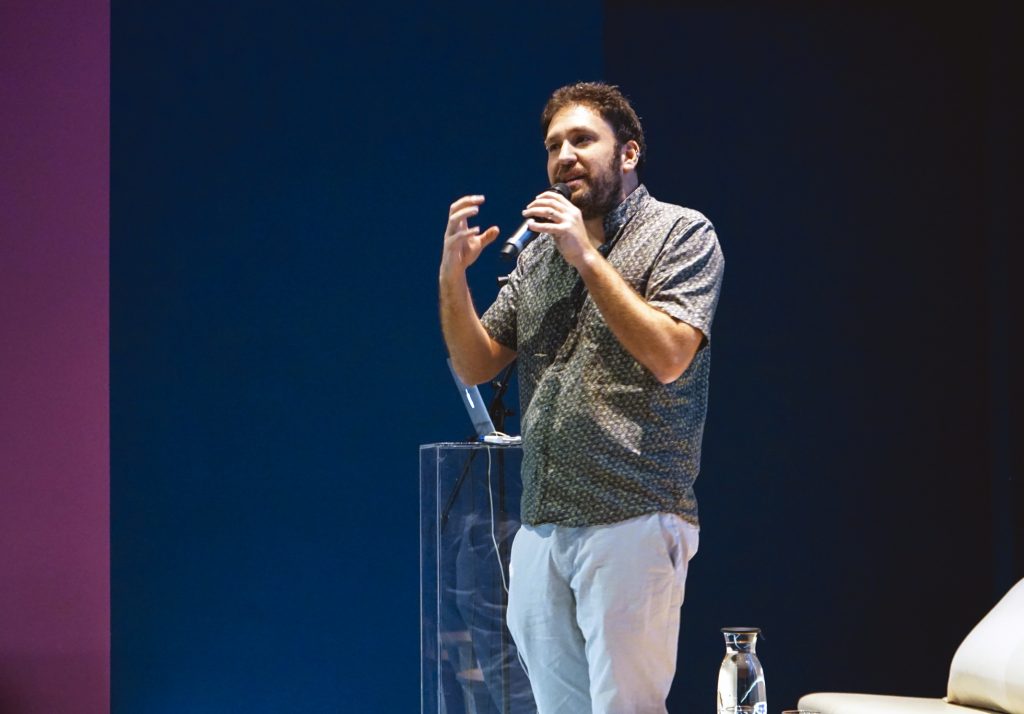
Image: On Garages and Genes, or the rise and fall of the California ideology, lecture by Hallam Stevens, Saturday, 23 November 2019, NTU CCA Singapore.
We are now surrounded by the living products of our own ingenuity. Hybrid fish, transgenic corn, and Wolbachia mosquitoes. We tend to view such creatures with dread, thinking of them as unnatural hybrids that confuse boundaries and cross categories. But what if we found ways of loving our creations more? What if embracing these hybrids allowed us to find new ways of living with and in nature? New institutional, structural, and philosophical relationships to our genetically modified cousins might just help us survive in the Anthropocene.
BIOGRAPHY
Hallam Stevens (Australia/Singapore) is Associate Professor of History in the School of Humanities at Nanyang Technological University and the Associate Director of the NTU Institute of Science and Technology For Humanity. He is the author of Life out of Sequence: a data-driven history of bioinformatics (Chicago, 2013), Biotechnology & Society: an introduction (Chicago, 2016), and the co-editor of Postgenomics: Perspectives on Life After the Genome (Duke, 2015). At NTU he teaches courses on the history of the life sciences and the history of information technology.
When: 5 Dec 2019, 7pm - 8.30pm
By: NTU Centre for Contemporary Art Singapore (NTU CCA Singapore)







